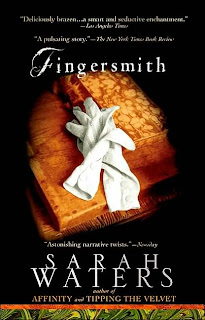I didn't waste any time getting to my reread of Michael Cox's The Meaning of Night this RIP season. I read this book near when it came out in 2006, a couple of years before I started blogging, so all I really had in the old noggin were memories of super-enthusiastic feelings. I was quite nervous in case the book didn't live up to those.
The story follows Edward Glyver as he tries to regain a birthright that he was kept from as a child and to get revenge for wrongs done to him as a youth. He fights against Phoebus Daunt, a poet and scoundrel, who is attempting to con his way into that birthright and into the heart of Emily, the same woman who Edward has fallen in love with. I know that sounds a bit stodgy and, well, Victorian, but that's because I didn't share the first line yet --
After killing the red-haired man, I took myself off to Quinn's for an oyster supper.Yes, Glyver lets us know from the first sentence that he is a murderer. And, from there, the story continued to keep my attention. It was smart and twisty and made great use of Cox's extensive knowledge of history and literature. I'm so glad that I reread it and it has re-whetted my appetite for Wilkie Collins and the other Victorian sensationalists. Not all books need supernatural villains, for there's truly nothing so scary as the evil men do.
Sussing the truth,
K



